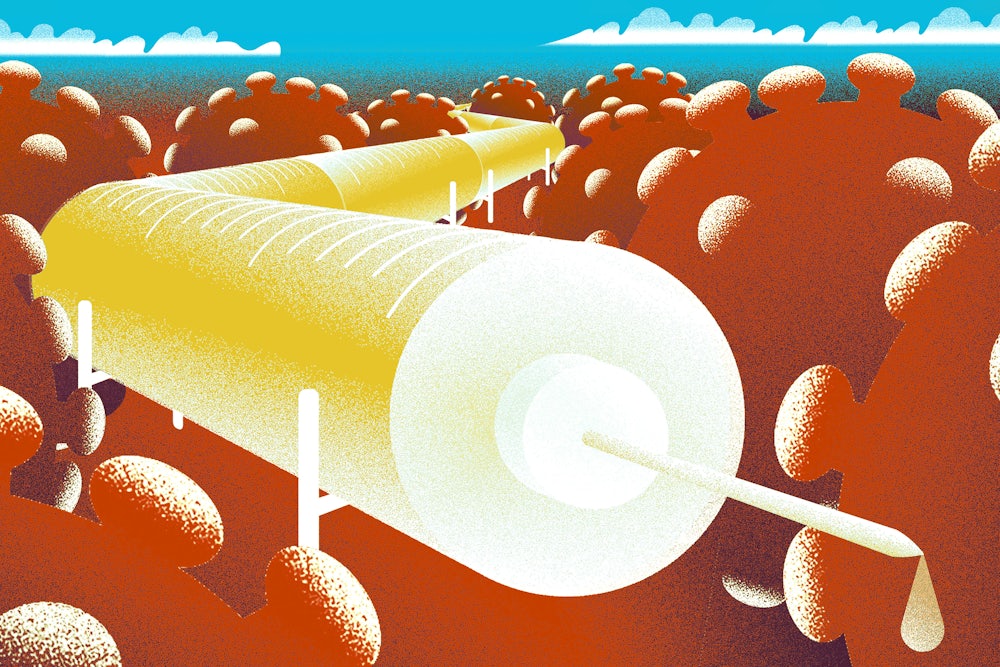On December 11, the Food and Drug Administration authorized Pfizer to begin distributing its vaccine for Covid-19. The triumphant moment comes on the brink of a grim winter, amid record case levels across the United States, and it is accompanied by countless unknowns. For Episode 22 of The Politics of Everything, hosts Laura Marsh and Alex Pareene talk to Nicholas Christakis, a physician and sociologist at Yale University and the author of Apollo’s Arrow: The Profound and Enduring Impact of Coronavirus on the Way We Live, about what to expect in the coming year and beyond—what it will take to recover from the pandemic’s devastation, and how our lives may be permanently changed. Later in the show, Melody Schreiber, a frequent contributor to The New Republic, and Rebecca Coyle, the executive director of the American Immunization Registry Association, join to discuss the challenges of the vaccine rollout. When will vaccines be available to ordinary people? What kinds of problems may arise as they’re distributed and tracked? How long, in other words, will all this last?
Laura Marsh: You say that we should expect to see people’s behaviors change in a lasting way. Are there examples that you can think of from previous pandemics or plagues where the way people act has actually changed significantly?
Nicholas Christakis: One of the key examples I like to give is spittoons. At the turn of the prior century, around 1900, there were tuberculosis outbreaks in this country, and public spitting was rightly seen as very unsanitary. And then the so-called Spanish Flu struck in 1918. At the time, not only was public spitting not uncommon, but every restaurant had a little brass bucket in it called a spittoon that you could spit in—just really gross, accumulating big buckets of spit over the course of a day. People got rid of these because we don’t want people spitting in our restaurants. After the epidemic was over, the spittoons didn’t come back. None of us have ever been to a restaurant where we’re like, “Where is the spittoon? I want my spittoon back.”
Laura: Is there something in the twenty-first century that resembles a spittoon, but we’re so used to it that we don’t see it as disgustingly unhygienic?
Nicholas: Well, I don’t think hand-shaking is as disgusting as public spitting, but I do think there’s a possibility that handshaking may go the way of spittoons. You know, there are different ways of greeting each other in different cultures. In Europe and the United States, we shake hands, sometimes we hug strangers when we first meet them. But in many other parts of the world, people bow, they clasp their hands together, and they don’t have physical contact.
Laura: Right. As a socially awkward English person, I’d prefer to stand about six feet away from the person and just wave to greet them. No warmth, no physical contact.
Nicholas: Exactly. The future is going to favor you hugely, Laura.
Read a full transcript of “How Pandemics End.”
